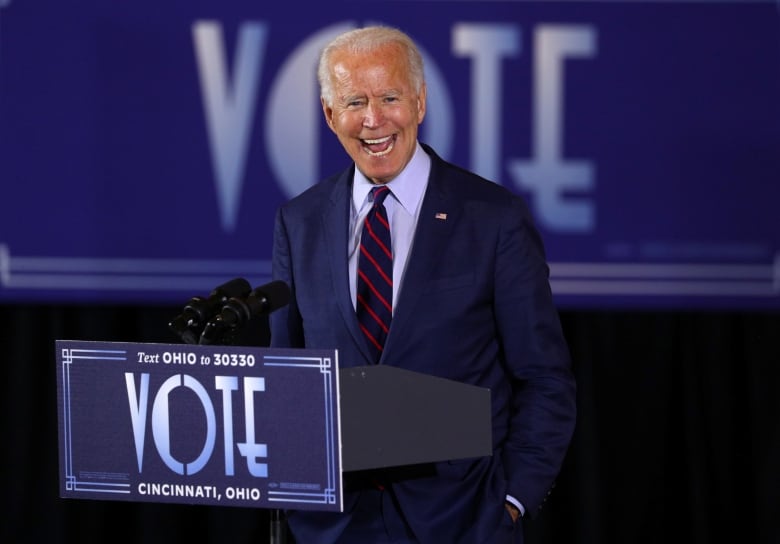The presidential field now has two Colorado Democrats vying for the nomination.
U.S. Sen. Michael Bennet, D-Colo., today announced his presidential candidacy, joining his former boss — former Colorado Gov. John Hickenlooper — as a White House hopeful. Bennet, 54, served as Hickenlooper’s chief of staff while Hickenlooper was the mayor of Denver.
“This country faces two enormous challenges, one is a lack of economic mobility and opportunity for most Americans and the other is the need to restore integrity to our government,” Bennet told CBS News, noting that his recent bout with prostate cancer gave him “a chance to think about whether I really wanted to run or not.”
Bennet’s career spanned many industries in which he initially had no training, from schooling to public service to investment.
After two years in Denver City Hall, and despite having no education administration experience, Bennet was tapped as Denver’s school superintendent.
In 2009, Democratic Colorado Gov. Bill Ritter appointed Bennet to fill the Senate seat occupied by Ken Salazar, the newly minted Secretary of Interior. Bennet went on to win a close race in 2010, and then re-election in 2016, vastly outraising his opponents and even securing more votes than Hillary Clinton did in the state in 2016.
Earlier in his career, Bennet worked as a managing partner for the Anschutz Investment Company, which would buy up debt of flailing companies and restructure them. Bennet helped merge three movie theater chains to form Regal Entertainment Group. He also was counsel to the U.S. deputy attorney general in President Bill Clinton’s administration and clerked in the 4th Circuit Court of Appeals.
Bennet has been an outspoken critic of the 2010 Supreme Court decision, Citizens United v. Federal Election Commission, introducing constitutional amendments to more strictly regulate the campaign finance system. He also co-sponsored legislation to eliminate “dark money,” or undisclosed donations in elections.
While some people praise Bennet for occasionally working with Republicans, such as being a part of the “gang of eight” senators pursuing immigration legislation, Bennet has also faced criticism for some of his compromises. He voted for the Keystone XL Pipeline and to loosen banking rules from the Dodd-Frank Act, positions that separate Bennet from most of his fellow Democratic presidential contenders.
Here’s what you need to know about Bennet’s personal and political finances:
- During the 115th Congress, Bennet sponsored two bills aimed at federal-level lobbying. One would have required more people to register as federal lobbyists. Another sought to significantly restrict former members of Congress from lobbying on Capitol Hill. Both died without receiving a vote.
- Bennet ranked 53rd among the wealthiest members of the 115th Congress with an estimated minimum net worth of $6.6 million, according to Roll Call. His latest financial disclosure covering 2017 shows he sold $1 million to $2 million worth of his interest in Regal Entertainment Group and owes $250,000 to $500,000 for his Washington, D.C., home mortgage. Most of his wealth is housed in a mix of retirement plans, mutual funds, savings accounts and stock. His family also owns a 1,500 acre farm in Marianna, Arkansas, for which they received $20,000 to $65,000 in rent and royalties interest, according to Senate filings.
- Over the course of his Senate career, Bennet’s top contributors were PACs and employees of the environmental advocacy group League of Conservation Voters ($340,000), financial services firm The Blackstone Group ($176,000) and law firm Brownstein Hyatt Farber Schreck ($176,000), according to data from the nonpartisan Center for Responsive Politics.
- From 2013 to 2018, Bennet’s U.S. Senate campaign committee raised $17.6 million. More than half of these funds came from large-dollar donors — those giving more than $200. About one-fifth came from political action committees. If Bennet chooses to transfer any leftover Senate committee funds to his presidential campaign, he has $1.5 million available.
- BGR Group lobbyist Jonathan Mantz collected $28,000 in checks for Bennet’s Senate campaign warchest. Mantz has a long political history, serving in top financial roles at the Democratic super PAC Priorities USA Action, for Hillary Clinton’s 2008 presidential campaign and for the Democratic Congressional Campaign Committee. His law firm bio boasts that he raised close to half a billion dollars for Democratic campaigns throughout his career. Amazon, aircraft manufacturer United Technologies Corporation and Cox Enterprises are among Mantz’s lobbying clients, according to Senate records.

- Bennet’s Senate campaign reports having $374,819 in outstanding debt — to Bennet himself. The committee is still paying off two loans — one for $250,000, and one for $300,000 — stemming from Bennet’s 2010 primary and general elections. From 2009 to 2018, Bennet personally shelled out $810,970 to help fund his campaigns. Most of his self-funding came from the 2010 election cycle.
- Political groups such as super PACs and “social welfare” nonprofits spent more than $12.3 million against Bennet during his two Senate elections. A few of the entities that spent money on ads and messages opposing Bennet include the National Republican Senatorial Committee, super PAC American Crossroads, the U.S. Chamber of Commerce and the National Rifle Association.
- Bennet, who served as the superintendent of Denver Public Schools, has received nearly $6 million in large-dollar contributions (more than $200) from Denver residents throughout his campaign career, making the Mile High City the top metro area contributing to his campaigns. Bennet has also accepted $912,000 from people and political committees associated with the education industry, his sixth most generous industry, according to the Center for Responsive Politics.
- A Yale Law School graduate, Bennet has received nearly $3 million from law firms and lawyers since his first run for office. It’s the second most generous industry group behind individuals who work in the securities and investment industry who have together given more than $3.1 million to Bennet over the years.
Sources: Center for Public Integrity reporting, Federal Election Commission, OpenSecrets.org, Congress.gov, Denver Post, The Washington Post, The New York Times, Roll Call, The Dallas Morning News, U.S. Senate

